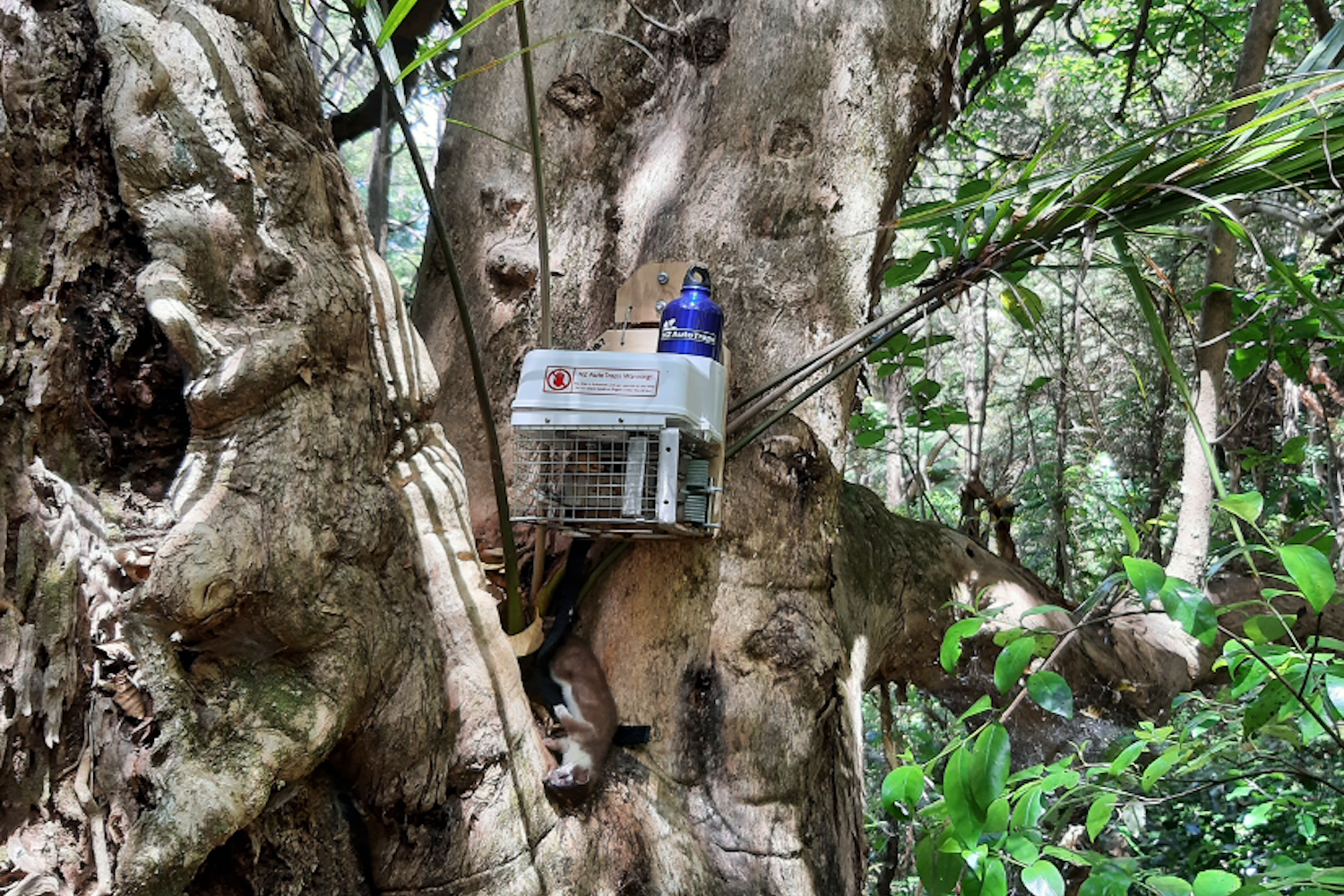New Trap Trials for the Halo Project
Predator Free Dunedin and the Halo Project are trialing an innovative new trap to create a permanent control network for possums.
The AT220 automatic possum and rat trap was developed by NZ Auto Traps in 2016. With a 6-month battery life, automatic dispensing lure and the ability to shut down during daylight hours, it is an exciting option for widespread use across Dunedin.
After a funding investment from Predator Free 2050 Limited, the traps are being used across Aotearoa. Developing new and innovative tools for predator control is critical to achieving our vision and is an exciting opportunity for Predator Free Dunedin to test how new devices are developed, adapted and implemented for on-the-ground efforts.
Since Orokonui Ecosanctuary is at the heart of the Halo, the team included a trial to assess whether the traps are safe for kākā living in the area. The Halo Project and Orokonui Ecosanctuary worked with the University of Otago to test how birds interact with the traps.
Summer student researcher Petra Simpson used trail cameras to monitor 20 traps in four locations for 10 weeks. Her research saw a total of four kākā interactions with traps — including three by the same bird.
Most involved the bird hopping around on the tree where the trap was mounted with only one attempting to use its beak to open the lure bottle before flying off. No birds investigated the kill mechanism on the trap, with all evidence to date pointing to a low risk of birds being injured or killed.
The interactions also happened during the day, meaning the ability of these traps to shut down during daylight hours could be an excellent way to manage risk to kākā. During the 10 weeks, the traps caught a total of 14 rats and four possums providing further evidence for the Halo’s ongoing trials.
Next steps include looking at risks to inquisitive juvenile kākā. The Halo Project will also scale up their trial across 2200 hectares, spanning from Orokonui to Heyward Point in Aramoana.

